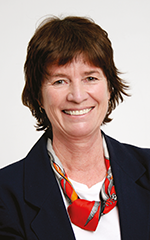

I couldn’t resist watching The World Industrial Reporter’s video on Ten Scientists Killed By Their Own Experiments. Some of them would have deserved the Darwin Award for taking themselves out of the gene pool, but a couple attracted my attention because of their association with one of today’s key issues: alternative energy. For example, Max Vallier devoted himself to creating rocket-powered trains and sleds, but in 1930, desperate for a liquid-fuelled rocket, he died in his lab after a motor running on liquid oxygen exploded. Meanwhile, Harry Daghlian in 1945 was working on the first atomic bomb and dropped a tungsten carbide brick onto a radioactive core. His hands began to glow and he died soon after from radiation poisoning; and Carl Scheele, who discovered oxygen, chlorine and manganese, regularly tasted toxic substances, eventually dying of mercury poisoning in 1786. Probably the best known is Marie Curie, who in 1934 died of leukaemia after exposure to radioactive materials over three decades. She used to hold radium in her bare hands.
Then there is the scientist who accidentally killed the most people in history, causing two environmental disasters and the deaths of millions. Thomas Midgely inflicted huge damage on the world − twice. Firstly, he discovered that the addition of tetraethyl lead to petrol prevented engine knocking and aggressively promoted it. The result was devastating lead poisoning for millions of people. In 1924 he publicly breathed tetraethyl lead vapour for 60 seconds to demonstrate its safety, and suffered from lead poisoning for the rest of his life, eventually becoming bedridden. His invention, that allowed him to winch himself into different positions in bed, later malfunctioned and killed him.
Before that happened, he went on to leave his mark in history with another destructive invention. He found that CFCs were effective for refrigeration and air-conditioning and harmless to humans. However, they turned out to be deadly to the ozone layer. A hundred years later the planet is still recovering from the ill effects of the inventions of Midgely – the worst inventor in history.
In more recent news, the implosion of the experimental submersible, Titan, while diving down to the sunken Titanic was a mixture of reckless greed and explorer passion which completely ignored scientific principles, with disastrous consequences.
We might laugh today, but they were all passionate about their mission. Some made genuine contributions, some didn’t, but their efforts added to the body of our scientific knowledge.
Here is a more positive story about science. We all have our own opinion about Eskom, but in our story on the Eskom Expo International Science Fair, the company deserves full credit for its contribution to the future of scientific knowledge in South Africa. The expo inspires youngsters to take STEM subjects, and rewards the top achievers generously with bursaries and prizes. I was blown away by the winning research project of Tahir Ousman from Zinniaville Secondary School entitled ‘Twin prime conjecture and its significance in number theory’. Now that’s killer science. Apart from a full university bursary, he won a highly deserved trip to the Stockholm International Youth Science Seminar during Nobel Week – a prize to dream of.
A few years ago I went to a similar science expo at the CSIR and there was the same excited vibe. Outside, the kids were having a nice time socialising, with not much science going on. Inside was an array of really good science displays, and I watched the faces of the youngsters – entranced and inspired by the possibilities. That day I couldn’t help feeling optimistic about our country’s scientific future.
In another pocket of excellence, a diverse group of young visionaries aged 12 to 17 are making waves in the world of robotics. Texpand has earned international acclaim for its innovative approach to engineering and problem solving. The youngsters recently made history by winning the 2024 FIRST Tech Challenge World Championships, competing against over 200 teams from across the globe vying for the coveted title.
Texpand is making robotics into a spectator sport. But much more than that, the team is working to make STEM education accessible to everyone, especially those from disadvantaged backgrounds. Following their victory, the kids have been hard at work putting together a programme to raise the level of awareness and involvement in robotics for highschoolers. They hope to secure more resources and sponsorships to start new teams and create opportunities for young students across the country to participate in FTC.
These kids have high goals and dreams. If any companies would like to help them make a difference through sponsorship, assistance or mentorship please contact Lynn Robinson at <a href="mailto:"[email protected]">[email protected]</a>
| Tel: | +27 11 543 5800 |
| Email: | [email protected] |
| www: | www.technews.co.za |
| Articles: | More information and articles about Technews Publishing (SA Instrumentation & Control) |

© Technews Publishing (Pty) Ltd | All Rights Reserved